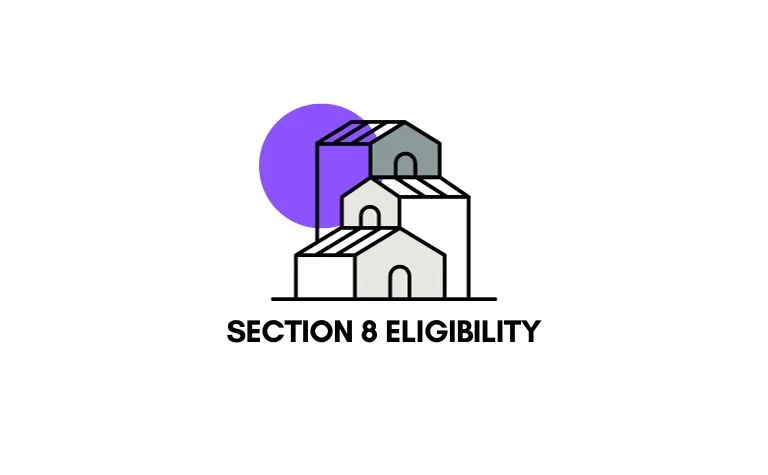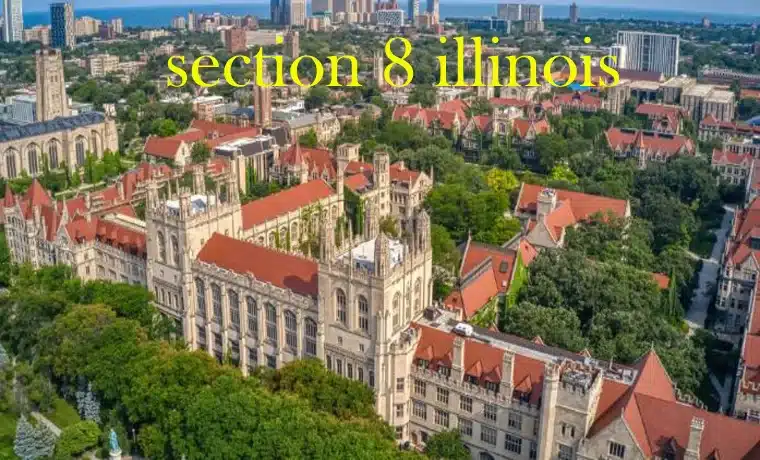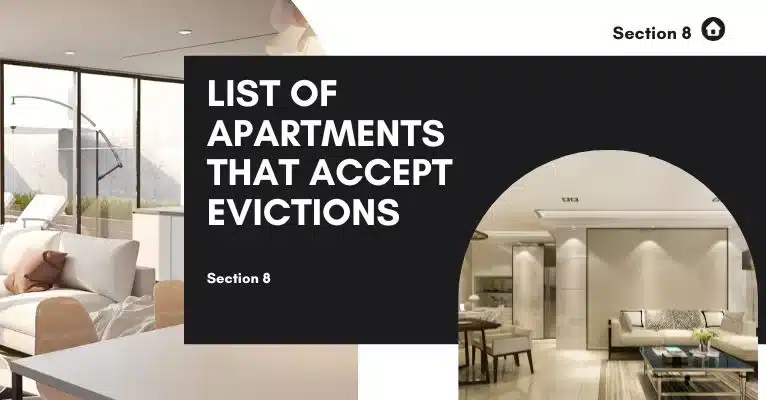Find a House with Bad Credit Under Section 8
Imagine finding a place to call home, only to be met with rejection after rejection due to bad credit records. This is the truth for many people and households who find themselves stuck in a housing crisis. They struggle to find a suitable house while dealing with the stigma of insolvency.
But, among these difficulties, one hope stands out: The US Government’s Section 8 Housing Vouchers. It is a lifeline for people and families going through horrific credit and housing shortages.
In this article, I will cover everything you need to know about the program and how to find a house for rent under it.
What is Bad Credit?
A low score is a measure of how sincere you are as a borrower. It’s typically represented with the help of a credit score, which tells lenders how likely you are to pay off borrowed cash.
This rating is primarily based on your past conduct, such as paying bills on time, using credit cards, and coping with loans.
Your credit score rating can range from very poor to excellent. A low credit score typically suggests that you’ve had problems managing your debts or payments, while a high score shows responsible financial behavior.
How Does Bad Credit Affect Your Ability to Rent?
When you’re looking to rent an apartment, landlords frequently check your credit as part of their screening process. Here’s how the credit score can impact your housing potential:
- Difficulty Getting Approved. Landlords may hesitate to rent you if they see a low credit score. They might fear you won’t pay your rent on time, which may create trouble for them.
- Higher Deposits or Fees. Some landlords may rent to you but ask for a larger security deposit or charge more due to your indebtedness. This can strain your budget.
- Limited Rental Options. With the credit, you may find it more difficult to secure a rental in ideal neighborhoods or buildings. Your picks may be confined to much less desirable regions or houses.
- Cosigners or Guarantors. Landlords might require you to have a cosigner or guarantor with a good credit score in case your credit is poor. This further burdens you to find someone willing to vouch for your ability to pay.
- How to Find an Apartment for Rent with low Credit score and Average Income
- Now that you have a good idea of how it works, let’s go over some techniques that could help you find apartments to rent with these credit scores.
- Look for Apartments That Skip Credit Checks
- It’s a good idea to start by finding leases that don’t require a credit score check. Whether you find such landlords or not depends on your location.
- You will find higher credit checks in areas with large property control organizations. In contrast, smaller landlords and properties in less competitive markets can be more flexible.
- Get in Touch With a Real Estate Agent
- Contact a real estate agent. These guys know the local rental market inside and out. They can direct you to apartments, which are much less likely to require a credit score.
- Remember that this provider generally comes with a fee, so understand the expenses before getting their help.
- Show Proof of Your Income
- Even with a low credit score, show proof of your income. Whether top-tier, average, or below-average, it can increase your appeal to landlords.
- Remember, the landlord wants to see whether you can afford the apartment. He has no further interest whatsoever.
- Be Transparent About Your Credit
- Honesty is your savior. If your credit records have suffered because of understandable issues, explain your state of affairs to landlords.
- Show them that you are committed to renting responsibly.
- Show Efforts for Credit Improvements
- Show landlords that you’re actively working to improve your credit score. If you write a letter of clarification, explain what you’re doing to enhance your credit score. Highlight positive changes.
What is Section 8 and How Does it Work?
This is a government plan. It helps folks with low earnings pay for their rent.
Instead of giving people homes directly, the Section gives vouchers. These vouchers allow qualified people to choose their homes from landlords in the regular rental market.
The idea behind this is simple: No one must live in a bad or unsafe area just because they don’t have the money. Section 8 helps folks find respectable houses and enables them to afford them, even though they don’t earn much.
What are the Eligibility Requirements?

To get help from the program, you have to meet certain regulations. These regulations include the following:
- Income Limits. Applicants must have a household income below a certain threshold, which varies by location and family size.
- U.S. Citizenship or Eligible Immigration Status. You have to be a U.S. Citizen or have the right immigration status.
- Criminal Background Check: Some crimes may make getting Section 8’s help difficult, depending on what you did.
- Asset Limitations: It may also look at what you own, like financial savings or belongings, to see if you qualify.
- Living in the Right Place: You must live inside the area where you apply.
Applying Process and Waiting Lists
Getting a Section 8 voucher is not as simple as asking for one. It involves these steps:
- Application. You begin by applying at your local Public Housing Agency (PHA). You can generally apply online, by mail, or in person.
- Verification. You must reveal proof of your profits, family size, and other essential statistics.
- Interview. Some PHAs may want to talk to you to ensure you qualify and understand your application.
- Waiting Lists. Because many people want help, you might have to wait on a listing for a while before you get a voucher.
- Voucher Issuance. When it’s your turn, the PHA will give you a voucher, and you can start looking for a place to rent.
How to Negotiate Terms and Conditions with Landlords
Securing a rental home with this score can be a bumpy road, but with determination and negotiation skills, finding common ground with landlords is possible.
- Discuss Flexible Payment Options. Discuss possible fee plans or flexible due dates with the landlord if you have trouble paying the monthly rent on time. Some can be open to accommodating your scenario.
- Offer to Sign a Shorter Lease. Landlords may be more willing to rent if you agree to a shorter rent term, including six months rather than 12 months. This allows them to reconsider the rental arrangement quickly.
- Demonstrate Good Tenant Behavior. Show your dedication to being an accountable tenant by paying the lease on time, maintaining the property, and respecting your neighbors so they can’t complain against you. This can assist in constructing good records, which can be more convincing than your credit rating.
- Consider a Co-Signer or Guarantor. If all else fails, ask a family member or friend with a high credit score to co-sign the rent or act as a guarantor. This individual becomes liable for the lease if you cannot pay.
- Know Your Rights. Familiarize yourself with the Fair Housing Act, which prohibits discrimination based on factors that include race, faith, or incapacity. If you’re being unfairly denied because of a score, knowing your rights and searching for legal help is vital.
Frequently Asked Questions
What minimum credit score is required to qualify?
There isn’t a specified credit score rating requirement. Eligibility is now based on income and other elements, not just credit scores. The credit won’t automatically disqualify you.
Can I still apply if I have a criminal record?
Yes, you can still apply. While some criminal convictions may affect eligibility, contacting your nearby (PHA) for guidance on specific conditions is best. Some of the landlords accept eviction records.
Are there any fees for applying?
There is no fee to apply. Beware of scams that charge fees for assistance. Contact your neighborhood PHA to apply without charge.
Can I use a Section 8 voucher to lease any property I choose?
You can rent a voucher from a landlord who accepts them. However, not all landlords participate in the application, so finding eligible properties may require little effort.
Conclusion
In the face of these score, finding a home can seem impossible.
However, the Housing Choice Vouchers provide a way to balance and hope for needy individuals and families.
By understanding the complexities of a poor credit score, taking advantage of the opportunities of Section 8, and overcoming the obstacles with determination and perseverance, it is not impossible to have a stable area to call home.







